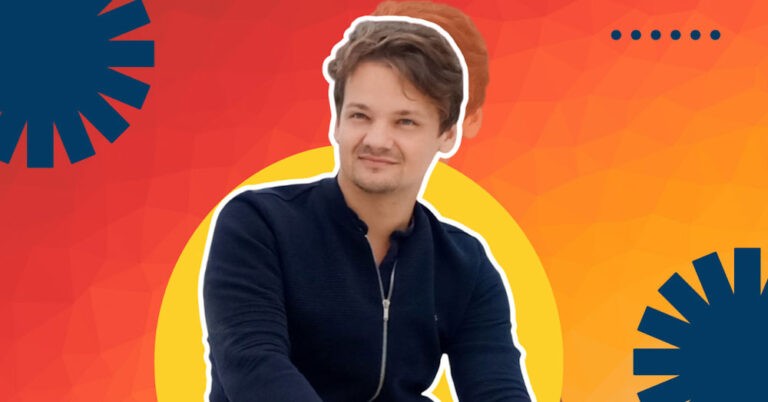It is said that there are 100 books on happiness available in the market today, and that is likely true. If you go to Waterstones, Amazon, World of Books, a library, or any other book store, you are likely to find several books on the topic of happiness. However, with such a huge volume of books available, how can we be sure that any given book is good and worth reading?
To write my book, Optimal Happiness, I read every book on this topic I could find. I made it a hobby to read and collect happiness books, and to review them, since there are a lot of bad books out there and I don’t want people to waste their time reading them.
The resulting system is a 10-point scale, which I used to review 38 best happiness books and make individual happiness book reviews. This list doesn’t include all of the 100 books previously mentioned, because a majority of books I read ultimately weren’t about happiness. After making the cut, you can already see that two-thirds of the books were bad, but there were still a few good ones.

So here is how I determined which books were good and which weren’t:
1) Is it the science & art of happiness?
If the answer is “no” then I instantly disqualify the book from my list.
There are just too many books that have the word “happiness” in their title or subtitle, but they don’t actually address the art and science of it, such as:
- The Pursuit of Happiness – based on the 2006 movie
- Make Space for Happiness
The first book is fiction, while the second is about minimalism.
2) Is happiness a God?
If the answer is “yes” then I instantly disqualify the book from my list.
Here, I’m not referring to any specific religion or God, as generally speaking spiritual pursuits positively correlate with an increase in happiness.
Still, some authors focus exclusively on saying “happiness is God” and don’t elaborate past this claiming, “believe in God and you will be happy,” which is why I often disqualify these books as they aren’t universally applicable to all readers.
3) Is it random happiness advice?

Many books just list as many solutions for happiness as possible, like: take a shower, eat an ice cream, say hi to your neighbor, and write poetry. But this does nothing to solve the problem, as we can correlate virtually anything to the pursuit of happiness.
Every single day of our lives we are already seeking happiness in 101 ways, so just giving the reader more ideas on how to be happier or less sad just confuses them.
Instead, a good author will try to give the reader a complete happiness formula, which is concrete, step-by-step, and the ultimate aim should be to reach our happiest potential (which I often refer to as Optimal Happiness).
4) Is there a unique contribution?
Another issue with simply listing solutions for happiness is that there is no creativity, just reiterating the facts. Almost anyone can say something about happiness, but it’s not always meaningful or original. This is why someone who can not only recite the facts but can give a unique contribution to the topic (or several contributions) is so valuable!
5) Does it answer the 4 key questions of happiness:
5a) What is Happiness?
The question “what is happiness” becomes especially pertinent when we are unhappy and we can’t find a quick remedy for this unpleasant sensation, which is why people start thinking “if this isn’t happiness, then what is?”
At this point, a good and comprehensive definition of happiness is required, as if any road leads to Rome, then it doesn’t matter which road we take, while some roads will get us to our desired destination quicker than others, and some roads will lead us in a completely wrong direction!
5b) Why happiness?
Corresponding to the “what is happiness?” it is essential to define “why” we want to be happy in the first place. Again, when we just presume that something is important without properly understanding why it is important then we can end up doing the wrong thing. This is certainly evident to me given so many people who value negative emotions, frequently pursuing them to the detriment of positive emotions.
The bottom line is that they never learned “why” happiness is essential, as if they knew the answer to this question, they wouldn’t be so focused on making their lives miserable and complaining about their unhappiness.
5c) How to be happier?
As a happiness coach, “how to be happier?” (or less unhappy) is one of the most frequent questions I hear. Yes, people often bypass the previous two questions and immediately go to this question, which is a problem for the reasons mentioned above.
At the same time, yes we want a resolution for happiness, and some solutions work better than others, which is why “how to be happier” is such a crucial question.
5d) How to be the happiest we can be?
Just saying “happier” is too vague. When everything relates to happiness, just providing 101 solutions for happiness isn’t enough. We need to make a considerable and permanent contribution to one’s state of well-being. We need to look at how we can become as happy as we can be. We need a formula for Optimal Happiness.
6) Is happiness evasive?

Many well-known authors have perpetuated the misconception that happiness is evasive. However, there are some people in the world whose happiness isn’t elusive. It is unconditional and durable, and isn’t conditioned by the state of affairs in the world, no matter how good or bad they may be.
Therefore, if someone claims that happiness is evasive, they are essentially saying that they don’t have the answer to achieving true, lasting happiness – even if they have come close to the answer, close is not good enough.
7) Is it a happiness author?
In the present day, many authors proclaim themselves to be experts on the topic of happiness, when in reality, they are experts on related topics such as money, relationships, public speaking, etc., but they still claim that their information will bring about happiness.
In my experience, these authors do understand a certain aspect of happiness, whatever they specialize in, but I often find that they don’t provide the full happiness formula. This is why I give extra credit to those authors who solely focus on researching and writing about happiness.
8) Is it easy to read?
When it comes to authors who are experts on the subject of happiness, Martin Seligman often springs to my mind. However, his books can be extremely difficult to read due to his academic writing style.
Conversely, some books are easy to read as they are written by personal development, self-help, or life coaches, as they are experts on presenting easily digestible information.
Of course, there are some good storytellers who write without providing enough relevant information, but these have already been eliminated when we asked the 4 main questions about happiness (e.g., What is happiness?).
Therefore, we are searching for books that are easy and enjoyable to read, awarding books with higher readability as they have a better chance of keeping readers engaged.
9) Is it a comprehensive happiness formula?

Ultimately, a good book should provide a happiness formula with different steps that anyone can follow in order to reach their happiness potential. If, after finishing reading a book, a reader is left with questions such as, “What is happiness?” and “How can I be happy?”, then that book is incomplete, and it isn’t really universally applicable as a good book.
10-Point Scale in Practice
To exemplify the 10-point scale in action, let’s take, for example, The Happiness Project by Gretchen Rubin. Overall, I rated this book 6/10 because:
Is it the science & art of happiness? Yes (Qualified).
Happiness is a God? No, which is good (Qualified)
Random happiness advice? Yes (0 point)
Is there a unique contribution? No, it just recites other research (0 point)
Does it answer the Four key questions of happiness:
What is happiness? Yes (1 point)
Why happiness? Yes (1 point)
How to be happier? Yes, it gives a few suggestions (1 point)
How to be the happiest we can be? No, by the end of the book the author still doesn’t know 100% what happiness is (0 point)
Happiness is evasive? Yes (0 point)
Is it a happiness author? No (0 point)
Is it easy to read? Yes! If anything, this was an easy and enjoyable read (1 point)
Is it a comprehensive happiness formula? No (0 point)
Overall, out of 10 points, The Happiness Project gets 6 points, which is still relatively good.
If you are interested, you can see how other books fared in our 38 best happiness books blog post.
Conclusion
What do you think about my 10-point scale for rating all happiness books? Do you agree with it?
I have found that reading books is much simpler than writing reviews for them, especially in such a precise manner, judging them on the 10-point scale discussed above. As such, I am doing my best to review as many books as I can on the topic of happiness, giving them a fair chance to be deemed the best book on happiness.
Still, I understand that I have not yet reviewed all happiness books, so if you are interested in learning about a particular book, please let me know in the comments, and I will make sure to prioritize its review in my blog.















